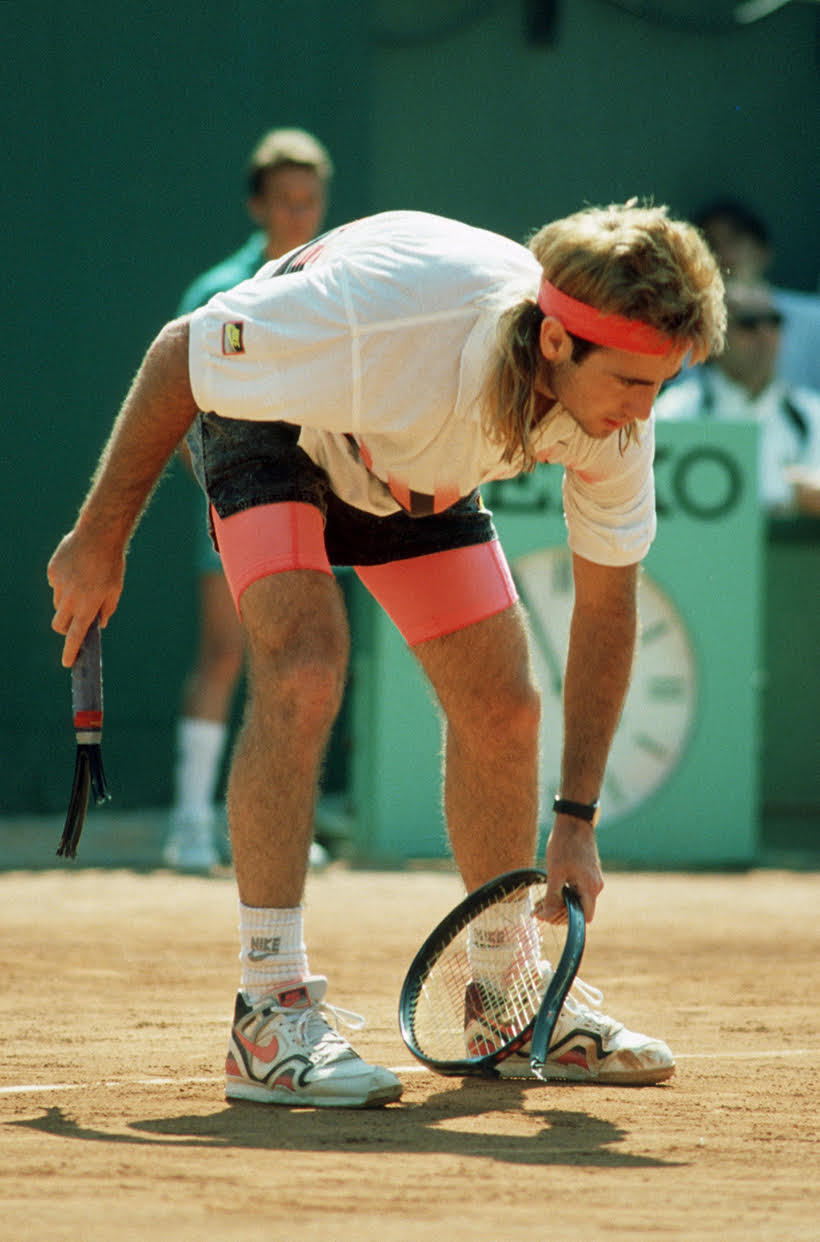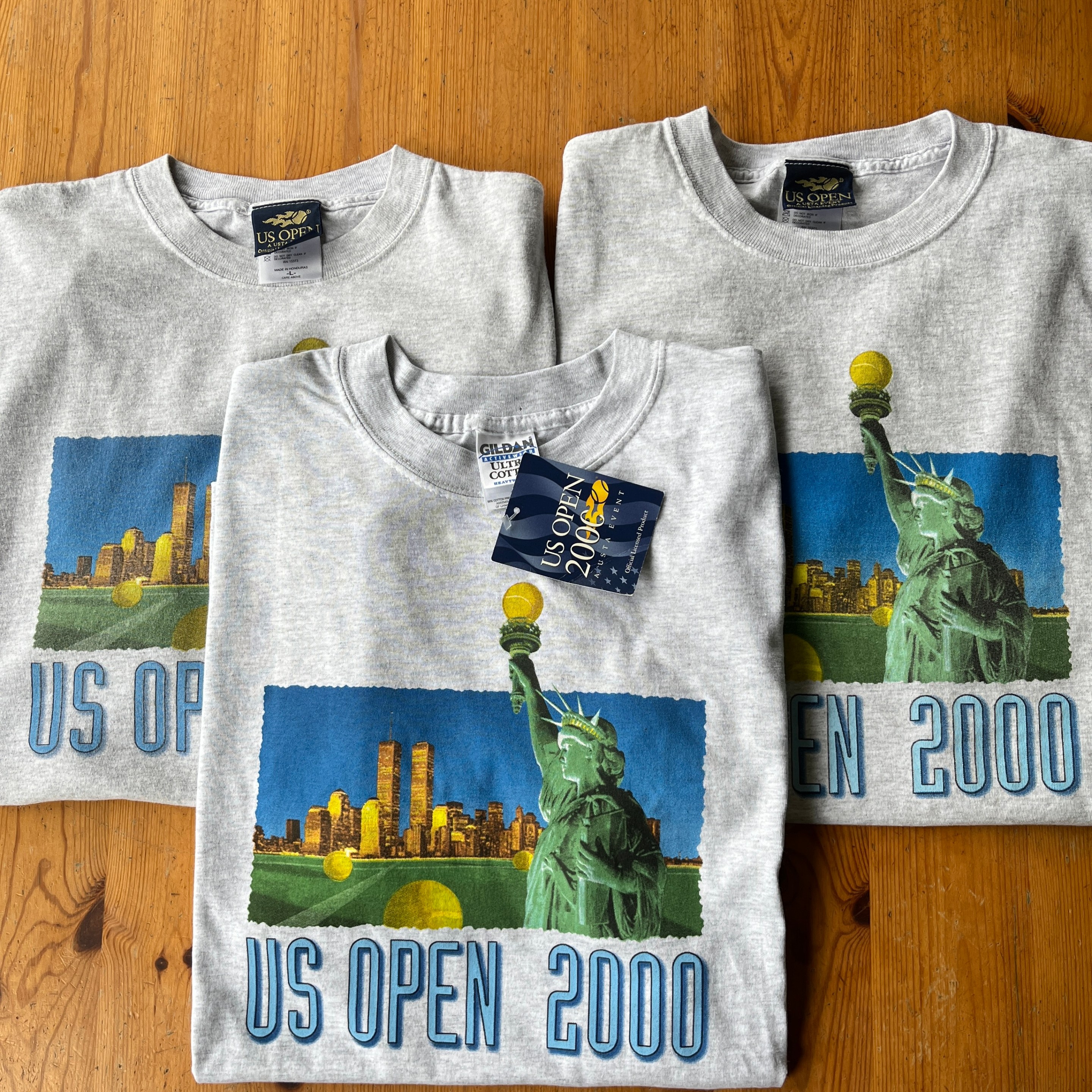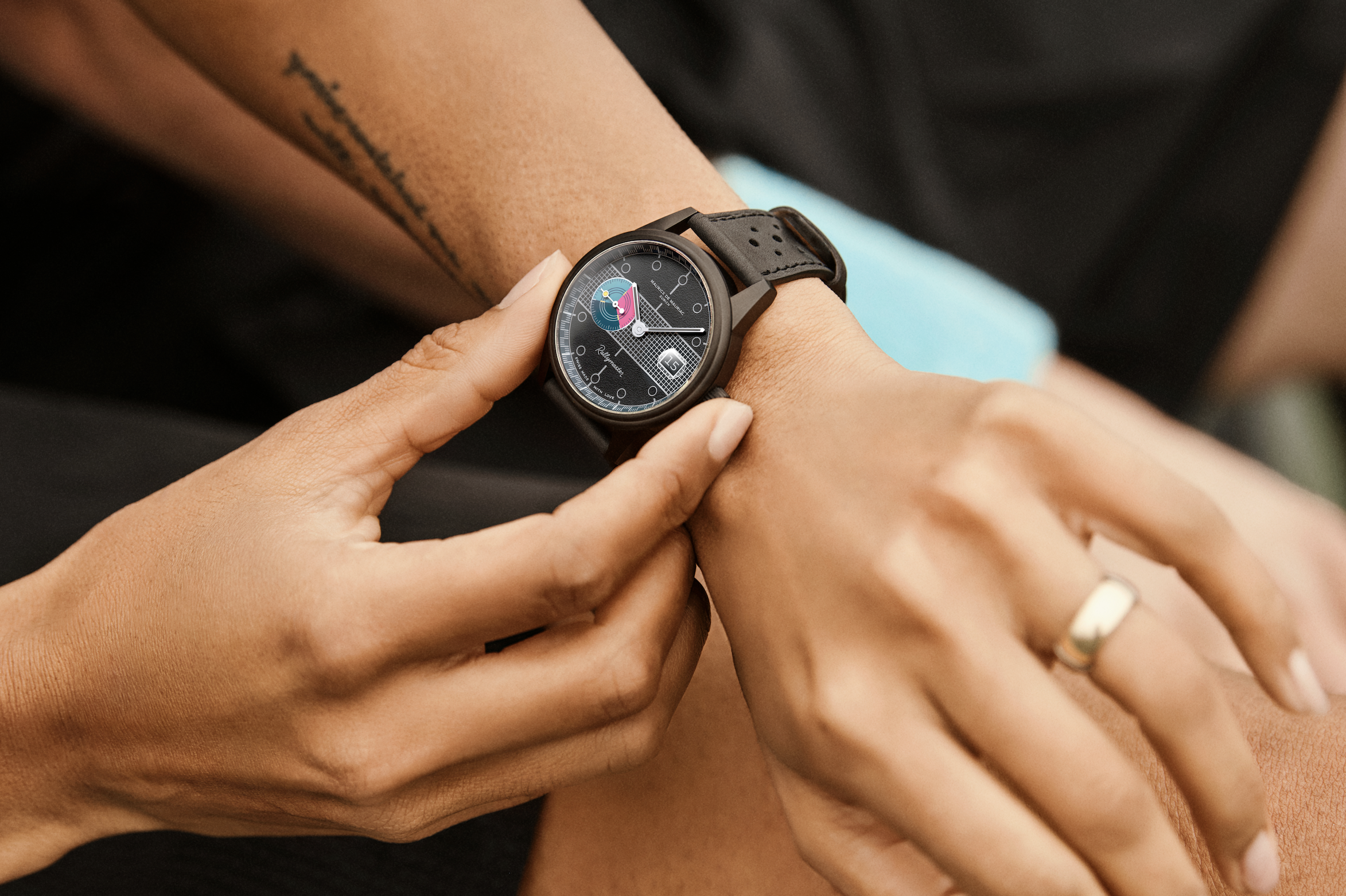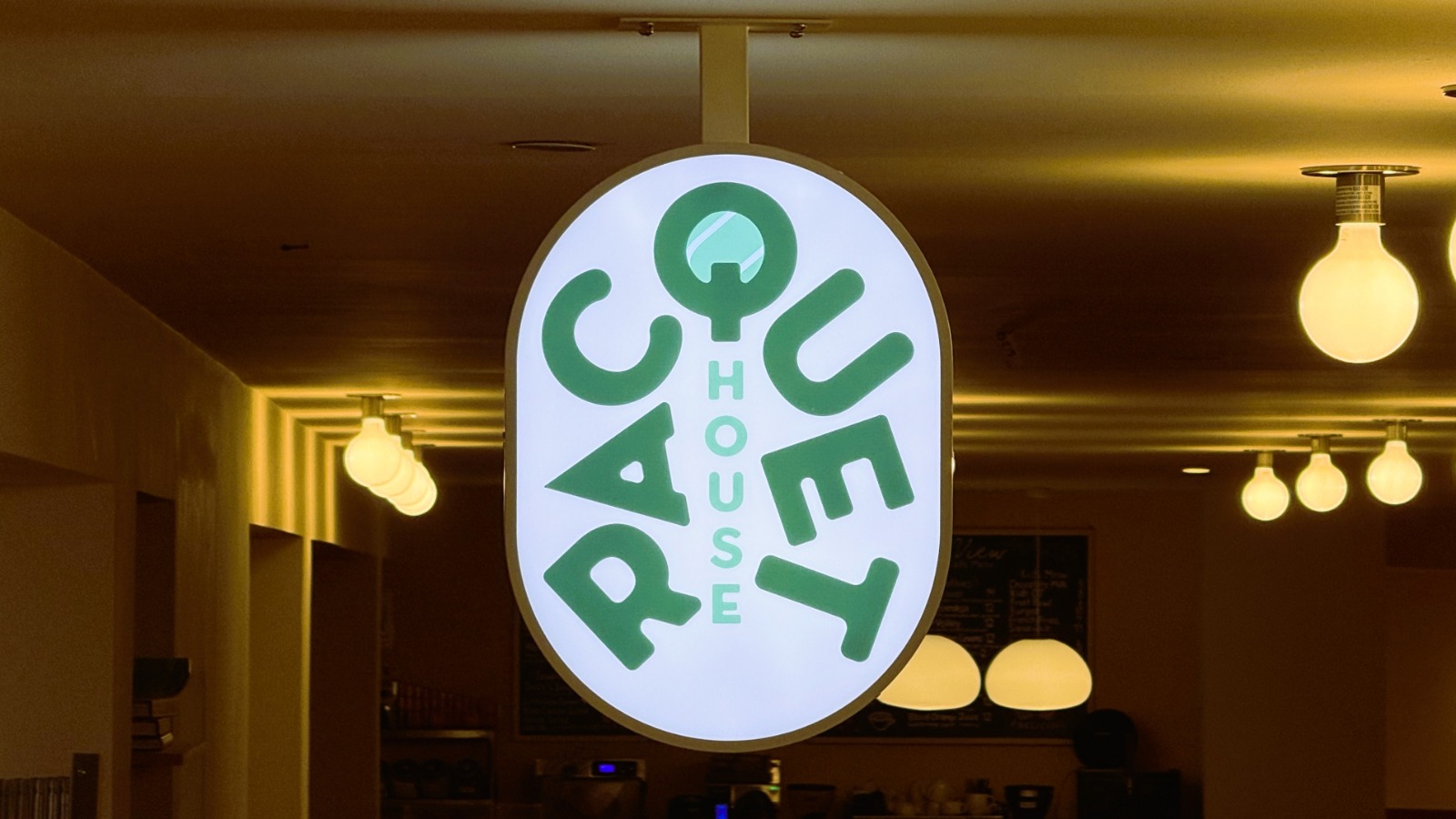Racquet’s See You In Court is a regular column in which I, Melissa Kenny, a famously mediocre lifelong player, heed reader questions about tennis, be they desperate (Help! I’ve won a few matches moonballing and now I can’t stop!), desperate in a different way (Where are the hot young tennis players in my area?) or life-threatening (Is it just me or are all tennis shoes fugly?). What I’m trying to say is, AMA! Look out for prompts on Racquet’s Instagram, or make yourself known in my DMs.
Maybe you don’t even play for points. But you’ve modeled your game on the games of winners, and/or pay a coach handsomely to help you improve and eventually… win. The only constant is win. And because no-one sets out to play poorly, it’s difficult to know how to lose.
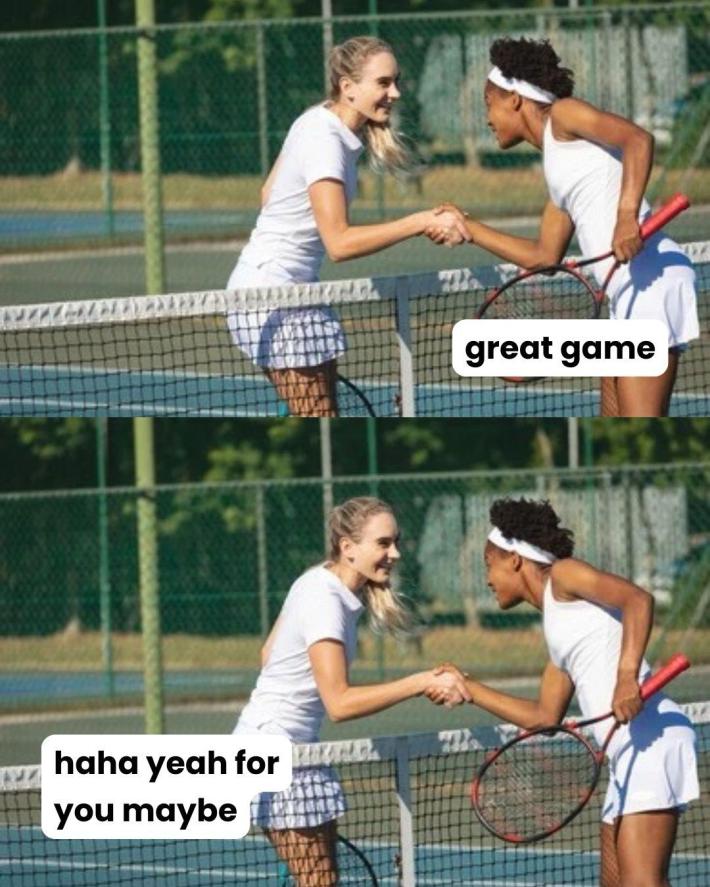
Some nerds surmise that Djokovic has won an average of 54% of total points across his career. Put differently, the best to ever do it averages at 46% of points lost—which sounds like a lot to lose if you forget tennis is about winning the right points; not necessarily the most. Nevertheless, such fine margins help to explain why this game makes us such miserable, petulant cunts.
Some petulance is permissible. An unhinged outburst free from profanity or racquet abuse might get a pass—and can even be endearing—when you’re down in a match, but petulance spoken out loud swiftly turns crass after you’ve been named the loser. (More on Sabalenka later.)
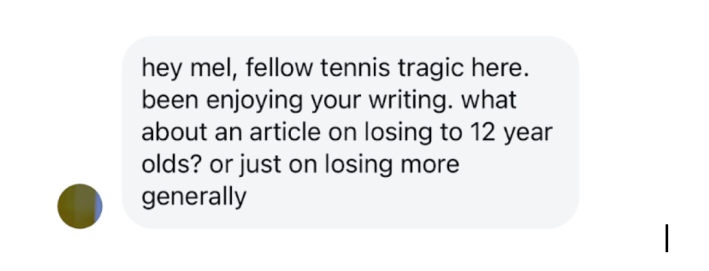
There are lots of books about losing. They’re often themed around turning a negative into a positive, or reclaiming your power. A guy named Sam Weinman wrote one called Win at Losing: How Our Biggest Setbacks Can Lead to Our Greatest Gains, wherein you’ll find advice like, “Put a hand on your chest, give yourself a hug and tell yourself that this is hard, but it's going to be OK.” Respectfully, I reserve heartfelt sincerity for the two major ceremonial markers; weddings and funerals.
Instead, here are three less weird ways to be a good loser (if only for the sake of optics):
- Your handshake and exit
Gauff, Musetti, Pegula, Rune, Zheng, Medvedev, Badosa, he who sprayed a premonition of winning the French all over Instagram before losing in the quarters (Zverev): All top ten players who lost in the first round of Wimbledon last week. Medvedev, never one to go non-verbal, made comments in set 1 as he was being outplayed, (“Why not play like this every day, win millions, be rich? ... No, he [Benjamin Bonzi] decides to do it once a year"). Yet when it came time to shake hands, he (and each of the above-named losers) gave polite, pithy, perfunctory praise—textbook tennis pleasantries. You ought to do the same, whilst giving your best impression of a sincere person. (Noone said anything about meaning it.)
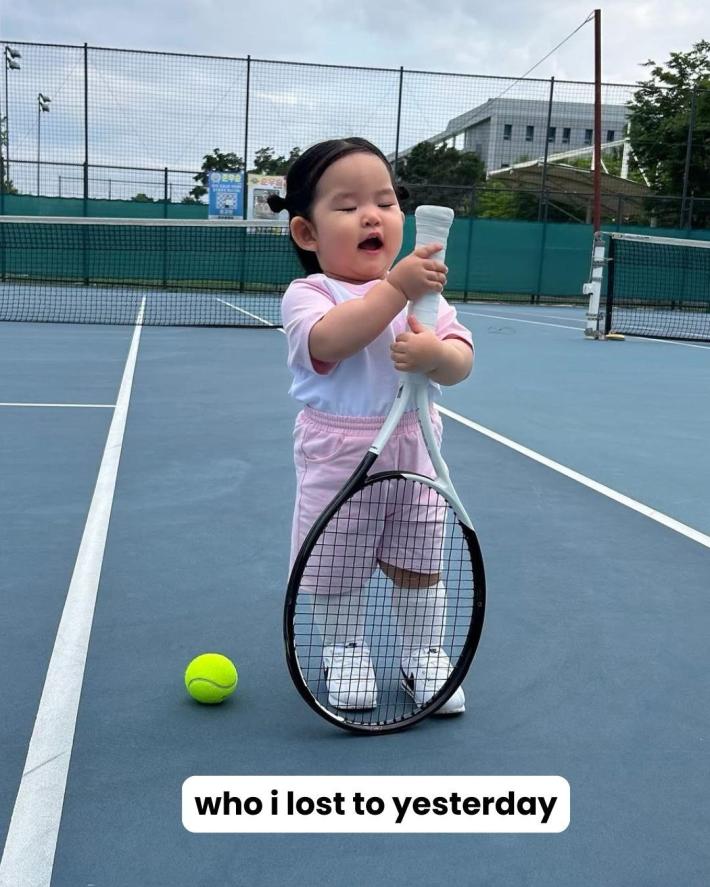
Now! Gather your belongings and leave like your most religious grandparent is watching. I’m talking shoulders BACK! Chin UP! Only a mega-jerk brat-baby would appear bothered while exiting the court. Save your coulda woulda shouldas for someone you share saliva and/or a utilities bill with.
2. Your post-match narrative
We’ve covered this before, but I prefer my pros with personalities. Sue me! Or unhand me at once because you know the strong silent types are a yawn. Make no mistake, though: being ungracious after a loss is not an example of having a personality—it’s an example of being an ungracious loser. Hope that helps.
Medvedev kept with his catty little narrative in the press conference following his loss to Bonzi, remarking. “I’m surprised if you find… him playing like this any other match this year.”
Similarly, the internet arranged its face in a unanimous cringe after Sabalenka’s tone-deaf speech—and knife-twisting press conference—following her loss to Gauff at the French in May. Unforced errors have never been a clear-cut metric of performance—but they were the metric Sabalenka clung to to justify her loss; all while skirting the truth that Coco’s mental grit begot Sab’s paper-thin nerves begot the 70 unforced errors. She gave us the old, it’s not you (who won) it’s me (who lost). Fortunately, save a performative TikTok dance with Coco, all of Sabalenka’s reparation efforts since have felt increasingly sincere, including—according to Catherine Whitaker of The Tennis Podcast— a “not defensive” and “not boiler plate” admission of guilt at Wimbledon’s Media Day according to Catherine Whitaker of The Tennis Podcast. Like Keith McNally, she regrets almost everything. Point is, you can always come back from a heated indiscretion, but it’s easier if you act right all along.
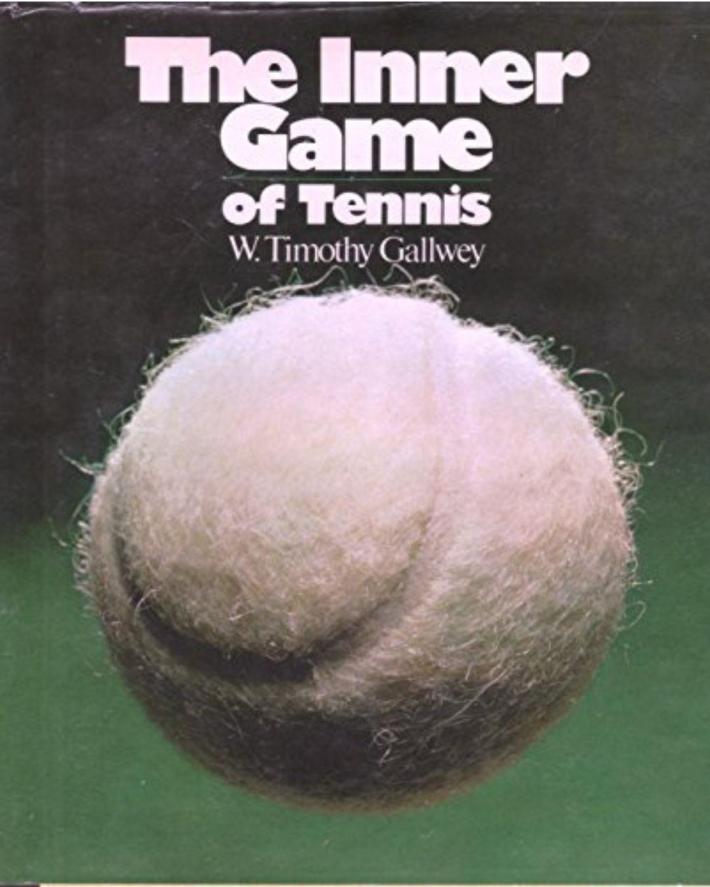
3. Your learnings for next time
I said what I said earlier about books. However, like every religion, ours has a sacred tome: The Inner Game of Tennis by Timothy Gallwey. With deep earnestness, Gallwey affirms what we all know to be fact: that there are two games—the one played on court with balls; and a second, more excruciating game of the mind that’s played by and with yourself only.
Gallwey proffers that there's two selves within each player, even non-Geminis. Self 1 is the conscious mind, concerned with critical analysis and instruction. She’s a meddling backseat driver. A pesky interloper. She says, “I have a lot of thoughts” and it’s funny, because you don’t remember ever asking for them. These thoughts are of the neurotic sort; where judgment and self-doubt collide.
Self 2 is the unconscious, autonomous doer. She’d do her job well if only Self 1 would pipe down. And so, this Gallwey fellow wants us to relinquish self-criticisms (I knew I’d double-fault) in favor of objective observations (I’ll wait for the right toss this time). It’s less about ignoring mistakes; more about resisting the urge to pile shame on top of them. Classic therapy stuff! Best believe this guys also reminds us to breathe. It’s advice that feels blatant to a moronic degree—until I catch myself mid-roast after framing successive forehands. Who’s the moron now?, I’d ask myself had I learned nothing. Alas, if it was easy, everyone would be doing it. And maybe that’s why we like the feisty pros: they haven't quite mastered The Inner Game of Tennis either.
